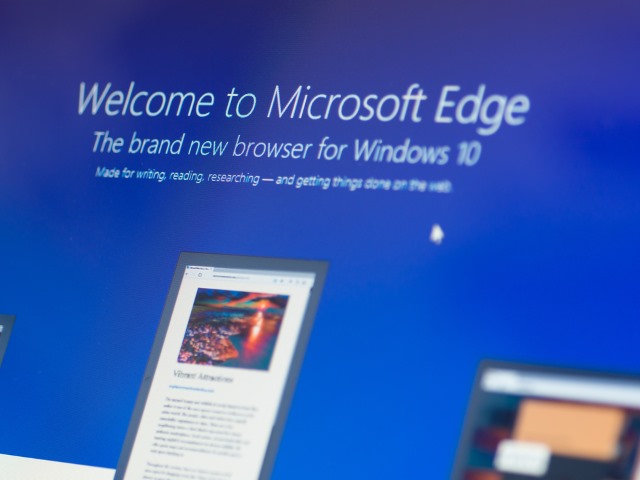
Google Chrome users on Apple macOS get enhanced Safe Browsing protection
Thanks to its Unix foundation, macOS is a rock-solid desktop operating system. While it is not infallible, there are far fewer malware threats for Apple's OS compared to, say, Windows 10. With that said, Microsoft's desktop offering is more targeted due to its monstrous market share.
As more and more consumers buy Mac computers, evildoers will have increased incentive to write malware for macOS. Luckily, users of Apple's operating system that choose to use Google Chrome for web surfing will soon be safer. You see, the search giant is improving its Safe Browsing initiative to better warn macOS users of malicious websites and attempts to alter browser settings.

Vivaldi introduces flexible screenshot tool, universal mute option for tabs
Vivaldi 1.7 has been released for Windows, Mac and Linux. It’s the brainchild of Opera co-founder Jon S von Tetzhner, and makes a good claim to be the most customizable web browser out there.
The new release debuts some significant new features, including a fully functional built-in screenshot tool, more flexible options for muting sounds across multiple tabs and a host of other minor tweaks and enhancements.

Opera 43 adds 'instant page loading', classic link selection
Opera Software has released Opera 43 to the stable channel with enhanced performance-boosting tools and a welcome productivity tweak.
Instant page loading is a pre-rendering technology which attempts to predict URLs as you type, and starts to load the site in the background before you even hit enter.
Microsoft is working hard to make Edge a great browser -- but is it too late?
Bundling Internet Explorer in Windows 95 was enough for Microsoft to win the "browser wars" and consign Netscape to history, but a lot has changed since then. Bundling Edge in Windows 10 has had negligible effect on Chrome and Firefox’s dominance. After a year and a half, Microsoft Edge still only has a little over 5 percent share, according to NetMarketShare.
It didn’t help that Edge was only partially baked when Windows 10 debuted. Why swap your existing browser for one missing core features and with a far-from intuitive interface? (How to change the default search engine in Microsoft Edge quickly became one of my most viewed stories here). Microsoft is promising a wealth of new features for Microsoft Edge in Windows 10 Creators Update, but will that be enough to persuade users to give the browser a second chance?

Google Chrome for Apple iOS is now open source
There is a curious phenomenon on iOS -- Google's apps are often better on Apple's mobile operating system than on Android. It is for this reason that users of the search-giant's services can be perfectly content using an iPhone or iPad.
Google Chrome is a very popular web browser on iOS, with many folks choosing it over Safari. I prefer Apple's own browser, but I digress. The Chrome browser is largely open source, as it is based on the Chromium project -- except for the iOS variant, that is. Today, for the first time ever, the iPhone and iPad version of the browser is open source too.

Kaspersky and ESET top the security charts
The way people access the internet is changing, with a shift towards portable devices, and that in turn has led to a shift in the software they use.
Independent testing company AV-Comparatives has conducted its annual survey focusing on which security products (free and paid) are employed by users, along with their OS and browser usage.

Really, Google? Chrome 57 kills the ability to control and disable plugins
With web browsers being among the most frequently used pieces of software out there, it's little wonder that there is so much concern about security surrounding them. Browser plugins can be a major security worry, and with Chrome 57 Google has taken the strange decision to block users from disabling them or changing their settings.
While this is not the same as preventing users from changing the settings for extensions, or removing them, it still has important implications -- particularly if a security problem should be discovered in a plugin Google bundles with Chrome.

Google Chrome now reloads web pages faster and more efficiently than ever before
Have you ever been extremely dissatisfied with the refresh/reload performance of your web browser? Yeah, me neither. Quite frankly, I never gave much thought to it. Google has noticed, however, and it has improved the reload performance with Chrome 56.
The search giant did not discover the deficiencies of the reload feature on its own, as Facebook apparently tipped Google off to it. You see, the social network noticed that the Chrome web browser was less efficient compared to other browsers, and now Google has rectified it.

Tabby Cat generates a feline friend for every new Chrome tab
There are endless Chrome extensions which replace your new tab page, typically to give you gorgeous photo wallpaper or equip your browser with productivity-boosting tools.
Tabby Cat has a simpler aim: it generates and displays a cute new cat on the background of every tab you open.

WayBack Machine's official Chrome extension gets a major update
It’s barely a week since we looked at the WayBack Machine’s simple Chrome extension, but it’s just had a major update which makes the add-on much more useful.
Clicking the WayBack Machine icon now displays buttons to show the first or most recent archived copies of the current URL, as stored in the WayBack Machine -- perfect for seeing how a site has changed over time.

Vivaldi CEO: 'Stop your anti-competitive practices with Edge, Microsoft!'
Microsoft is no stranger to pissing people off, particularly when it comes to Windows 10. There have been endless cries about forced updates, complaints about ads, moaning about privacy, and now the CEO of Vivaldi has lashed out at the company for its anti-competitive practices with Microsoft Edge.
Jon von Tetzchner says that Microsoft has forgotten about the "actual real-life people that use technology in their daily lives." He takes particular umbrage at Windows 10's continued insistence of resetting the default browser to Edge.

Bypass annoying 'Error 404' web pages with WayBack Machine for Chrome
You’re busy online, browsing your way through some old web site, when you find a critical link, click it, and: Error 404 -- Not Found. Annoying, isn’t it?
WayBack Machine is a free Chrome extension which detects HTTP 404 and other "missing page" error codes, checks to see if an archived copy is available at the WayBack machine and offers you a "click here to see the archived version" link.

Microsoft starts advertising its Chrome add-ons in Windows 10
If you’re a Windows 10 user, you’ll be no stranger to Microsoft’s adverts which appear all throughout the operating system, including on the Start menu, and the Lock screen. As I wrote a week ago, Microsoft is planning on introducing even more adverts in the Creators Update.
The latest ad to appear is for one of Microsoft’s Chrome extensions, and it arrives -- appropriately enough -- above the Chrome icon on the taskbar. The browser doesn’t need to be open at the time.

Opera Neon provides a conceptual look at a potential future Opera web browser
Opera Software has released Opera Neon, the company’s first ever "concept browser". It’s been designed from the ground up to focus on web content and provide a different way of browsing and consuming the web.
Despite the fact it’s a concept browser, Opera Neon is based on the existing Opera desktop engine, and so is a fully functional browser in its own right.

Warning: Chrome, Opera and Safari's auto form fillers make it easy to steal personal data
We're all looking for ways to save time and effort, so it's hardly surprising that some web browsers offer a feature that automatically fills in online forms with commonly requested personal information. While incredibly useful, the feature can also be exploited to extract data a user might not want to share with a particular website.
Chrome, Opera and Safari all offer to save and automatically fill in details such as name, address, phone number, and so on, and users are ordinarily only aware of the data which is obviously filled in on their behalf. But a web developer shows how it is possible -- and very, very easy -- to use hidden fields to secretly gather all of the information saved in an autofill profile.
